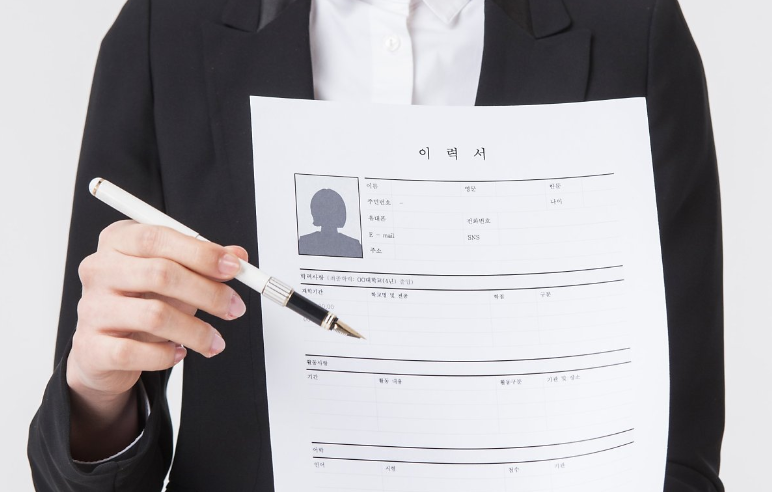The number of students who postpone graduation is continuously increasing due to job shortages. According to the online academic information site Alimi, the total number of students who applied for postponing graduation from four-year universities in Seoul City in 2023 has increased by 62% compared to 2019. The Sungkyun Times (SKT) will, therefore, investigate the current system of graduation postponement, as well as its limitations and possible solutions.
Regulations on Graduation Postponement
-What Is the Graduation Postponement System?
The graduation postponement system states that students who have met the requirements for a bachelor’s degree may not graduate in that semester and can continue to be university students for an extended period. This policy intends to help students prepare for the workplace while maintaining their status as university students. The amendment of the Higher Education Act in 2018 implemented the graduation postponement system. It clarified that universities should not mandate additional credits for graduation postponement to students who have already met their credit requirements. According to the 2023 statistics by the Ministry of Education (MOE), 70.3% of 320 universities in Korea operated the graduation postponement system. However, some universities have not introduced the system, while there are instances where some run the system partially or unofficially. In these universities, students must register for an additional semester and pay tuition to delay their graduation in these schools. At Sungkyunkwan University (SKKU), where there is no graduation postponement system, students can defer their graduation by registering for additional semesters or purposefully delaying administrative procedures required to attain graduation requirements. In other words, even though the credit requirements for graduation are met, students can choose not to accomplish other obligations such as Sampum. A senior from the Department of Chemical Engineering explained, “I will get a completion title since I have obtained my minimum number of credits. Because I have other graduation requirements left, I can postpone my graduation.”
-How Do Schools Charge Graduation Postponement Fees?

Graduation postponement fees are a part of the tuition that students taking advantage of the system pay to the school. Most universities impose graduation postponement fees to provide a minimum number of facilities for those students while also rotating the use of university facilities for others. The method of charging graduation postponement fees differs among schools, which can be divided into proportional rate fees and flat rate fees. The proportional rate fees charge students 6.5% to 12.5% of the total tuition, whereas flat rate fees collect a specific, designated amount without considering the tuition. For example, Konkuk University has adopted the proportional rate fee method, charging one-sixth of the total tuition, while Seoul National University of Science and Technology uses the flat rate fee method, which charges students ₩100,000 to be eligible for postponement. In 2022, the total amount of money collected from students by all universities was around ₩10.3 billion, and the highest fees paid were in public universities. The amount of money collected from the top eight national universities was ₩48.9 million.
The Dilemma of Postponing Graduation
-Advantages of Being a Student
Despite the existence of graduation postponement fees, many students still choose to participate in the system because the benefits of delaying graduation are significant. One of the advantages is that it allows them to maintain their student status, which grants them many benefits and programs to participate in. First, those who deferred their graduation are considered university students, allowing them to use the facilities on campus and participate in various programs, such as internships. They are also qualified to partake in extracurricular activities, which can help them to develop work skills. The biggest reason college students choose to delay graduation is that many think maintaining status as an expected graduate gives them advantageous points in the job market. “The current job market seems to favor students who do not have a career break. There is a sense of stability that comes with being a student,” said a senior in the Department of Economics in an interview with the SKT. In February, Job Korea, an online recruiting company, conducted a survey of university students eligible for graduation in 2025; 55% said they would postpone their graduation, and 62.9% said they would delay graduation because they think their status as a student will be more advantageous for employment. Due to these benefits, more students are now deferring graduation instead of entering the workplace.
-Double Burden of Deferred Graduation
Despite these advantages, there are still problems that need to be solved. The first challenge is that the amount of graduation postponement fees differs for each university, raising equity issues. Currently, the variation of postponing graduation fees is significant, ranging from 6.5% to 12.5%. Moreover, there are even schools where a separate tuition replaces the graduation postponement fees due to the absence of the system. For instance, in Seoul National University (SNU), a major national university that does not have a graduation postponement system, students must pay a minimum tuition of ₩407,000 to take one extra credit. This phenomenon occurs because no penalties exist for universities that do not have the graduation postponement system. In addition, universities collect graduation postponement fees without specifying how the fund is used. Students are unsure of how the money is being spent, making them more skeptical about the existence of such fees. Moreover, the fundamental reason students delay graduation — employment difficulties — is not addressed. According to the MOE, the number of deferred graduation students is growing by 10-20% due to the current economic recession. Despite this, the structural problem of rising youth unemployment remains unsolved.

Improvement of the Graduation Postponement System
-Legislation for the System
The current challenges must be solved to achieve the full potential of the graduation postponement system. First, it should be mandatory for all universities to run the system. In 2018, the same year in which the system was introduced, the Korea Higher Education Research Institute attempted amending the policy to mandate the system by law. Despite these efforts to make the system more student-friendly, the amendment was ultimately rejected. As more students are now taking advantage of the graduation postponement system, it is necessary to legally authorize it. Previously, there were no penalties for schools that did not have a system for postponing graduation, but now schools must be fined for not establishing the system. Making it mandatory for all universities would prevent unequal treatment and opaque policies. Additionally, universities should be transparent when using their graduation postponement fees by letting students know how they are used. Publishing information on the school’s official website, which allows students to access their information at any time, would be a progressive step.
-Exclusive Support for the Deferred Students
University-level support is necessary to address the fundamental and structural cause of graduation postponement: unemployment. Universities must expand their scope to include graduates in employment services. Programs for graduation deferring students should be designed with customized employment curriculum programs, which can help students plan their employment strategies. According to the 2016 College Deferred Graduation Survey Report, most students pointed out the lack of employment-related programs as an issue at their university and demanded solutions to address the problem. The University of California, Berkeley provides a comprehensive career support program for first-year and fourth-year students and beyond. Students can sign up for free career workshops on any topic each week and receive professional coaching on going to interviews and writing resumes. In Korea, Gyeongsang National University offers an online program for job careers, which helps students learn the basics of employment and builds their strategies for finding employment. Similar employment support programs should be encouraged in other universities to help students acquire the skills required for employment and be more competitive in the job market after graduation.

The graduation postponement system allows university students to utilize their time better for their needs. Students can use it to strengthen their job skills and take full advantage of being a university student. The SKT urges Kingos to continue to be aware of the graduation postponement system they may face.
